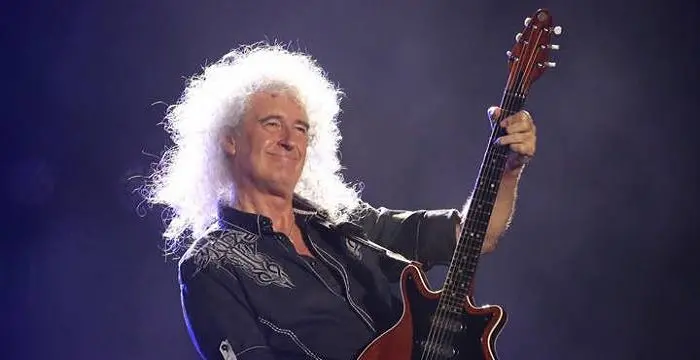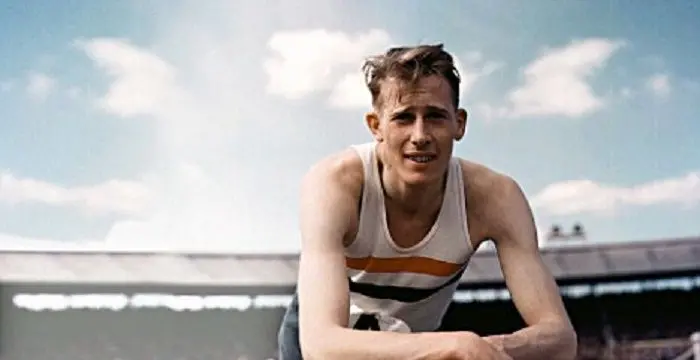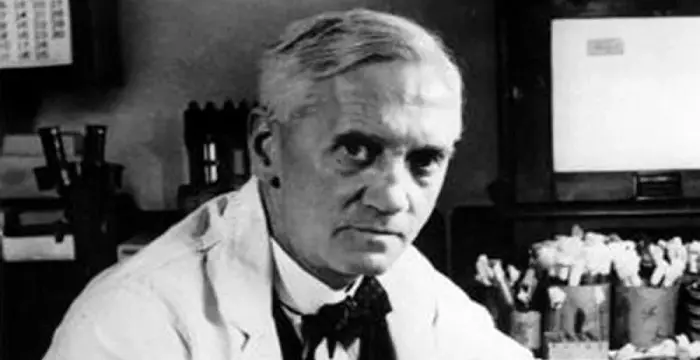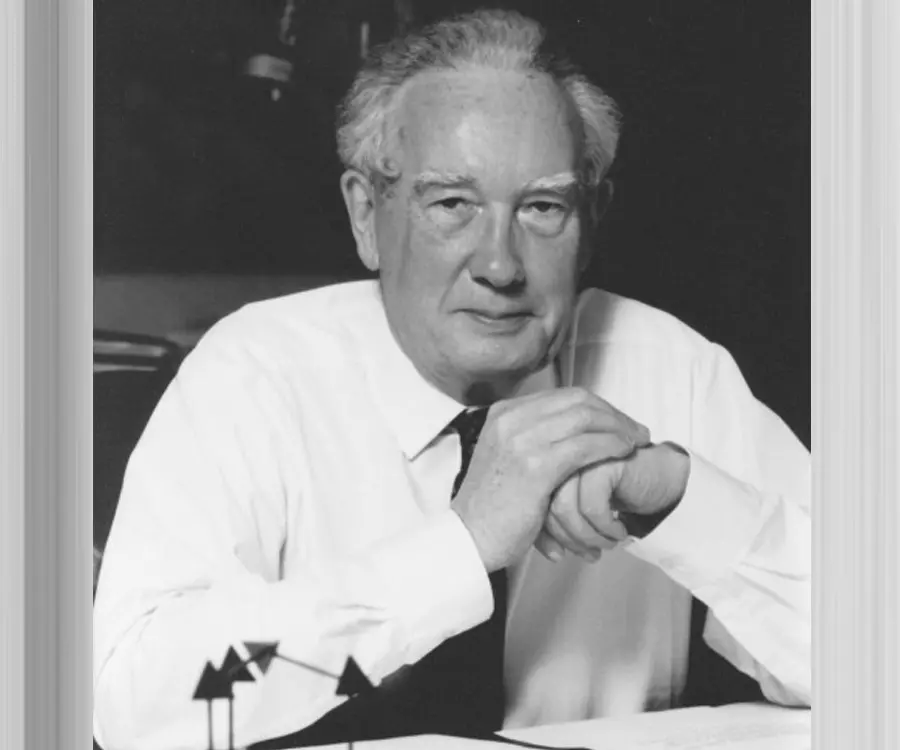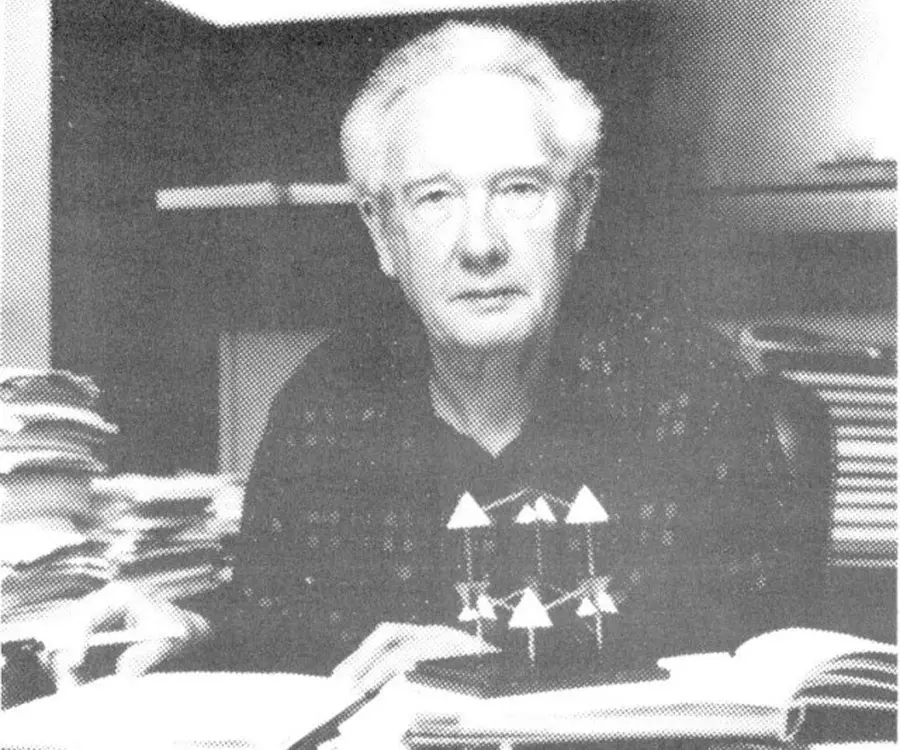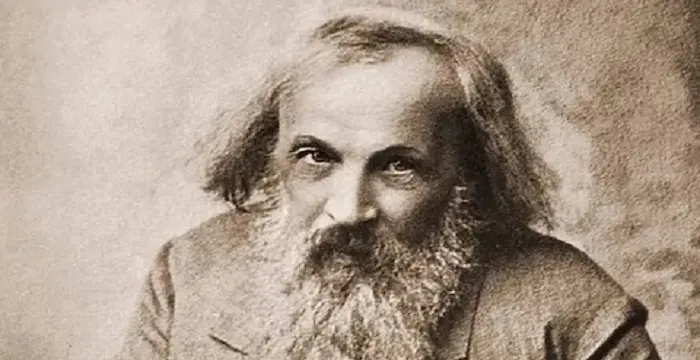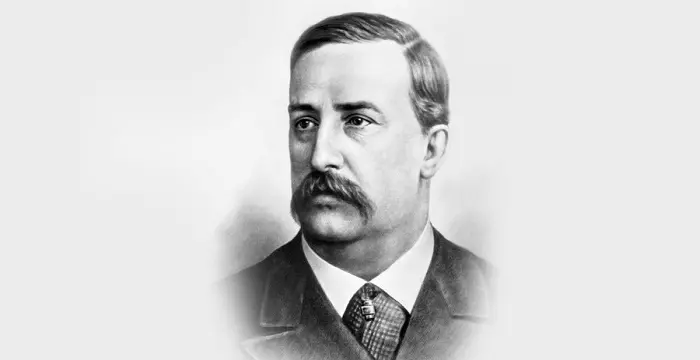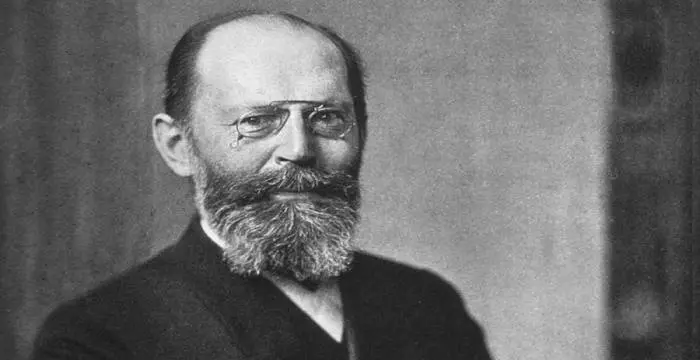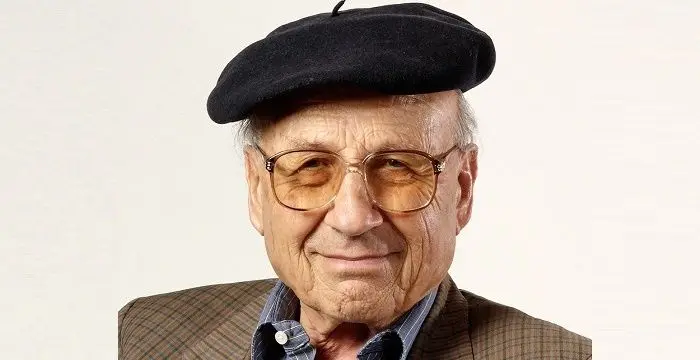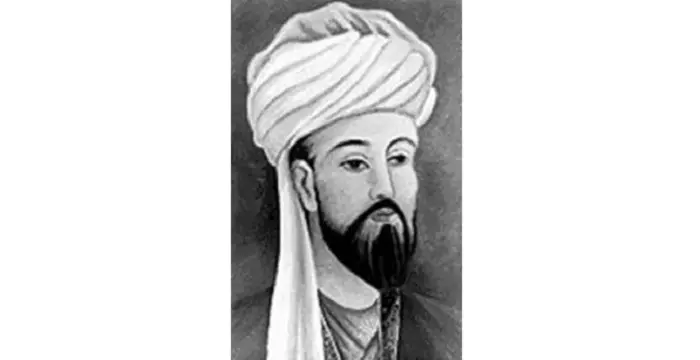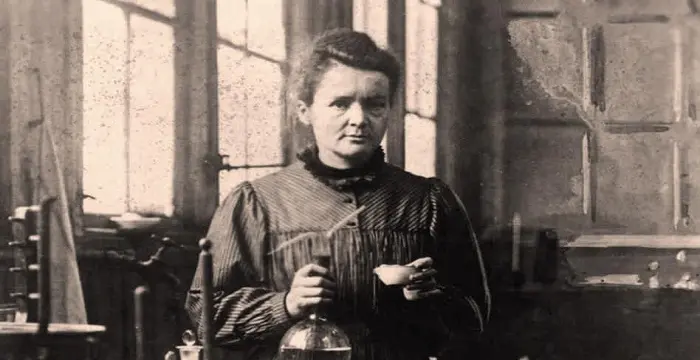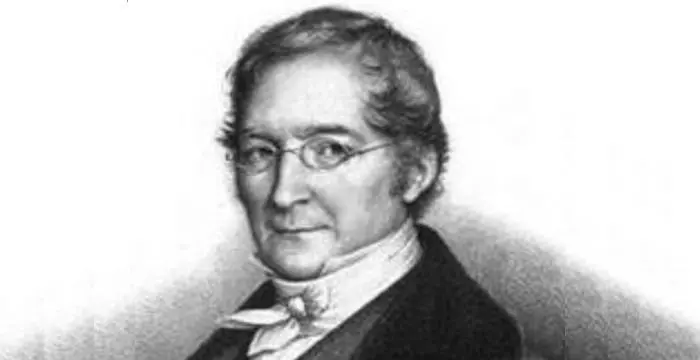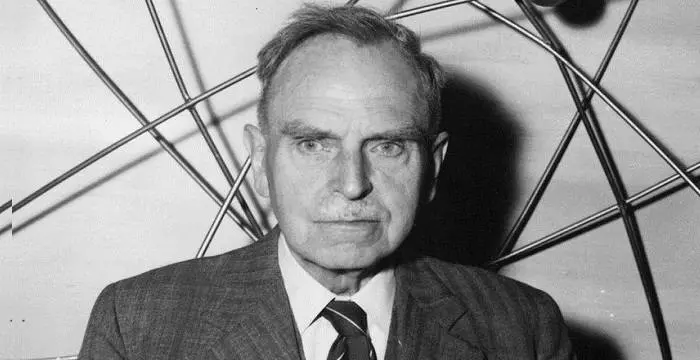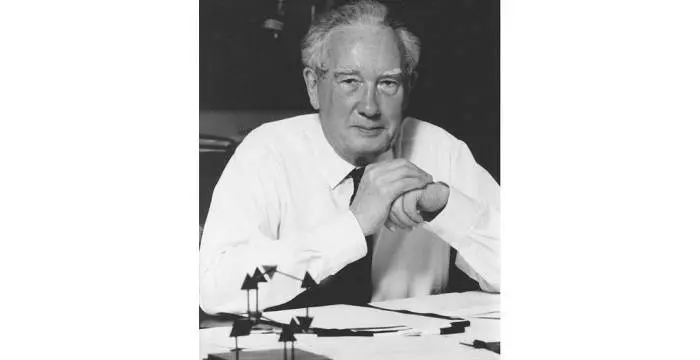
Derek Barton - Chemists, Birthday and Childhood
Derek Barton's Personal Details
Sir Derek Harold Richard Barton was an English chemist who received the Nobel Prize in Chemistry in 1969
| Information | Detail |
|---|---|
| Birthday | September 8, 1918 |
| Died on | March 16, 1998 |
| Nationality | British |
| Famous | Imperial College London, Scientists, Chemists, Organic Chemists |
| Spouses | Christiane Cognet, Jeanne Kate Wilkins, Judith Cobb |
| Known as | Sir Derek Harold Richard Barton |
| Universities |
|
| Notable Alumnis |
|
| Birth Place | Gravesend, Kent, England |
| Gender | Male |
| Father | William Thomas Barton |
| Mother | Maude Henrietta Lukes |
| Sun Sign | Virgo |
| Born in | Gravesend, Kent, England |
| Famous as | Chemist |
| Died at Age | 79 |
// Famous Imperial College London
Brian May
Brian May is a legendary and prolific guitarist from the famous rock band ‘Queen’. Explore this biography to learn more about his childhood, life, works, achievements and timeline.
Roger Bannister
Roger Bannister is an English doctor, academic and a former athlete. Check out this biography to get detailed information on his childhood, life, career, achievements and timeline.
Alexander Fleming
Alexander Fleming was a Scottish biologist and pharmacologist who discovered enzyme lysozyme and antibiotic penicillin. This biography of Alexander Fleming profiles his childhood, life, research, discoveries, achievements and timeline.
Derek Barton's photo
Who is Derek Barton?
Sir Derek Harold Richard Barton was an English chemist who received the Nobel Prize in Chemistry for the groundwork he laid for the determination of the three-dimensional shape of organic compounds. He shared the prize with a Norwegian chemist named Odd Hassel. Barton had a breakthrough while studying ‘conformational analysis’ or the ‘geometries of a molecule and its associated energies’ in 1950 when he suggested that the reaction rates of isomers were affected by the orientations of functional groups in space. Barton was one of the brilliant chemists at the heart of the movement that brought in a revolution in field of organic chemistry during the period 1940-1970. He did not restrict himself to any specialization in one field of chemistry but moved into other areas of the subject as well. He was gifted with the ability to draw out the general implications from the work of other chemists and bridged the boundaries of different fields of chemistry. He had the confidence to use his intuition instead of deductive logic in suggesting lines of reasoning which had remained incomplete until then. He carried out research on the oxidation of saturated hydrocarbons and on the way oxyradicals behaved. He developed an easier way to synthesize the hormone ‘aldosterone’ which was required for the treatment of Addison’s disease.
// Famous Organic Chemists
Dmitri Mendeleev
Dmitri Mendeleev was a Russian chemist who is best known for his discovery of the periodic law. Check out this biography to know about his childhood, life, achievements, works & timeline
Aleksandr Borodin
Aleksandr Borodin was a prodigal Russian music composer and scientist. This biography gives detailed information about his childhood, life, works, achievements and timeline.
Hermann Emil Fischer
Emil Fischer was a Nobel Prize winning chemist from Germany who is known for inventing the ‘Fischer Projection’ method. To know more about his childhood, career, profile and timeline read on
Childhood & Early Life
Derek Barton was born in Gravesend, Kent, England on September 8, 1918. His father was a carpenter named William Thomas Barton and his mother was Maude Henrietta Lukes.
He studied at the ‘Gravesend Grammar School’ from 1926 to 1929, the ‘King School, Rochester’ from 1929 to 1932 and at the ‘Tonbridge School, Kent’ from 1932 to 1935.
He enrolled for one year at the local ‘Gillingham Technical College’ in Gillingham, England to prepare himself to study chemistry.
He joined the ‘Imperial College, London’ in 1938 from where he received his B.Sc. degree in Chemistry in 1940.
He received a research fellowship from the Guiness Research, Distilleries Co. Ltd. and worked for his PhD from 1940 to 1942.
He earned his PhD in 1942 under the supervision of Martin Mugdan, an industrial chemist, who had fled Germay in 1939.
He received his D.Sc. from the ‘Imperial College’ in 1950.
Career
Derek Barton was asked to join the armed forces to fight in the Second World War after he had completed his PhD. But as he was declared unfit for regular military service because of a weak heart, he joined the Military intelligence instead.
During his stint in the Military Intelligence he spent two years in the development of an invisible ink that could not be detected by iodine spray.
He taught chemistry at the ‘Imperial College, London’ from 1945 to 1946 after leaving MI post the war.
In 1946 he joined Albright & Wilson’s ‘Imperial Chemical Industries’, a major phosphorous producer, at Oldbury factory in the English Midlands and worked on ‘organophosphorous chemistry’ till 1947.
He returned to the Imperial College, London’ in 1947 as a teaching assistant and devoted himself to steroid chemistry.
His work on steroid chemistry attracted the attention of Louis Fieser, the head of the chemistry department at the Harvard University, who offered him a one-year temporary post of researcher. He developed his theory of ‘conformational analysis’ during his stay at Harvard.
He returned to England in 1950 and joined the ‘Birkbeck College’ under the ‘University of London’ as a Reader which was equivalent to an Associate Professor of organic chemistry and became a Professor in 1953. He held this post till 1955.
In 1955 he joined the ‘University of Glasgow’ as a ‘Regius Professor of Chemistry’ and remained with this university untill 1957.
He returned to the ‘Imperial College, London’ in 1957 as the chairman of the chemistry department, and held the post till 1970.
During this time he was asked to collaborate with the newly founded ‘Research Institute for Medicine and Chemistry’ in Cambridge, Massachusetts, funded by the ‘Schering Corporation’. Here, Barton developed a method known as the ‘Barton reaction’ which helped to produce large amounts of the hitherto scarce ‘aldosterone acetate’ which is used for controlling the electrolytic balance of the human body. This success prompted the Ciba pharmaceutical company to set up the ‘Woodward Research Institute’ in Basel, Switzerland.
During the early 1960s, Barton was depressed after divorcing Kate and joined the ‘Institut Francais’ in South Kensington to learn French. Here he met his teacher Christiane Cognet whom he married in 1969.
He became the president of the ‘British Association for the Advancement of Science’ and the president of ‘International Union of Pure and Applied Physics’ in 1969.
He was made a ‘Hoffman Professor of Organic Chemistry’ by the ‘Imperial College, London’ in 1970 and held the post till 1978.
After retiring from the Imperial College’ he served as the Director of the ‘Institute of Chemistry of natural Substances’ in Gif-sur-Yvette, France from 1978 to 1986.
Barton joined the ‘Texas A&M University’ in the United States in 1986 as a ‘Distinguished Professor of Chemistry’ and remained in the post till 1995.
He served as a ‘Dow Distinguished Professor of Chemical invention’ at the ‘Texas A&M University’ from 1995 to 1998.
Major Works
Derek Barton collaborated with W. D. Ollis for the book ‘Comprehensive Organic Chemistry’ published in 1979.
His book ‘Some Recollections of Gap Jumping’ was published in 1991.
The book ‘Half a Century of Free Radical Chemistry’ was published in 1993 while the book ‘Reason and Imagination: Reflections of Research in Organic Chemistry’ was published in 1996.
Awards & Achievements
Derek Barton received the ‘Corday-Morgan Medal’ from the ‘Royal Society of Chemistry’ in 1951 and was made a member of the ‘Royal Society’ in 1954 and a member of the ‘Royal Society of Edinburg’ in 1956.
He received the Fritzsche Award’ in 1956, the ‘Roger Adams Medal’ in 1960 from the ‘American Chemical Society’ and the ‘Davy Medal’ in 1961.
He was made ‘Foreign Member’ of the ‘German Academy of Sciences, Leopoldina’ in 1967.
He received the Nobel Prize in Chemistry in 1969.
He was awarded the ‘RSC Longstaff Prize’ and the ‘Royal Medal’ in 1972.
He was made a ‘Knight of the British Empire’ and a member of the ‘Legion d’Honneur’ in 1972. He became an officer of the legion in 1985.
He received the ‘Copley Medal’ in 1980 and the ‘Priestley Medal’ in 1995.
He was made a ‘Foreign Member’ of the ‘American Academy of Arts and Sciences’ and the ‘American Chemical Society’.
He was an honorary lecture at several American universities at different times.
Personal Life & Legacy
He married Jeanne Kate Wilkins, a clerk, on December 20, 1944, and divorced her in early 1960s. He had a son, William Godfrey Lukes Barton from the marriage.
In 1969 he married Christiane Cognet who died of ovarian cancer in 1992.
After Christiane’s death Barton married Judith Cobb in 1993.
Derek Barton died of a heart attack in College Station, Texas, USA on March 16, 1998.
// Famous Scientists
Juliane Koepcke
Juliane Koepcke is a German-Peruvian biologist, who was the lone survivor among the 92 passengers and crew of the ill-fated LANSA Flight 508 that crashed in the Peruvian rainforest on 24 December 1971. Know more about her life in this biography.
Henry Cavendish
Henry Cavendish was a theoretical chemist and physicist, renowned for discovery of hydrogen and calculation of the mass of earth. To know more about his childhood, profile, timeline and career read on
Konstantin Tsiolkovsky
Konstantin Tsiolkovsky was a Russian rocket scientist and a pioneer of astronautics. This biography provides detailed information about his childhood, family, personal life, career, achievements, etc.
Derek Barton's awards
| Year | Name | Award |
|---|---|---|
Other | ||
| 0 | Royal Medal (1972) | |
| 0 | Knight Bachelor (1972) | |
| 0 | Copley Medal (1980) | |
| 0 | Priestley Medal (1995) | |
| 0 | FRS (1954) | |
| 0 | Davy Medal (1961) | |
| 0 | Nobel Prize in Chemistry (1969) | |
Derek Barton biography timelines
- // 8th Sep 1918Derek Barton was born in Gravesend, Kent, England on September 8, 1918. His father was a carpenter named William Thomas Barton and his mother was Maude Henrietta Lukes.
- // 1938 To 1940He joined the ‘Imperial College, London’ in 1938 from where he received his B.Sc. degree in Chemistry in 1940.
- // 1939 To 1942He earned his PhD in 1942 under the supervision of Martin Mugdan, an industrial chemist, who had fled Germay in 1939.
- // 1940 To 1942He received a research fellowship from the Guiness Research, Distilleries Co. Ltd. and worked for his PhD from 1940 to 1942.
- // 20th Dec 1944He married Jeanne Kate Wilkins, a clerk, on December 20, 1944, and divorced her in early 1960s. He had a son, William Godfrey Lukes Barton from the marriage.
- // 1945 To 1946He taught chemistry at the ‘Imperial College, London’ from 1945 to 1946 after leaving MI post the war.
- // 1946 To 1947In 1946 he joined Albright & Wilson’s ‘Imperial Chemical Industries’, a major phosphorous producer, at Oldbury factory in the English Midlands and worked on ‘organophosphorous chemistry’ till 1947.
- // 1947He returned to the Imperial College, London’ in 1947 as a teaching assistant and devoted himself to steroid chemistry.
- // 1950He received his D.Sc. from the ‘Imperial College’ in 1950.
- // 1955 To 1957In 1955 he joined the ‘University of Glasgow’ as a ‘Regius Professor of Chemistry’ and remained with this university untill 1957.
- // 1957 To 1970He returned to the ‘Imperial College, London’ in 1957 as the chairman of the chemistry department, and held the post till 1970.
- // 1967He was made ‘Foreign Member’ of the ‘German Academy of Sciences, Leopoldina’ in 1967.
- // 1969During the early 1960s, Barton was depressed after divorcing Kate and joined the ‘Institut Francais’ in South Kensington to learn French. Here he met his teacher Christiane Cognet whom he married in 1969.
- // 1969He became the president of the ‘British Association for the Advancement of Science’ and the president of ‘International Union of Pure and Applied Physics’ in 1969.
- // 1969He received the Nobel Prize in Chemistry in 1969.
- // 1969 To 1992In 1969 he married Christiane Cognet who died of ovarian cancer in 1992.
- // 1970 To 1978He was made a ‘Hoffman Professor of Organic Chemistry’ by the ‘Imperial College, London’ in 1970 and held the post till 1978.
- // 1972He was awarded the ‘RSC Longstaff Prize’ and the ‘Royal Medal’ in 1972.
- // 1972 To 1985He was made a ‘Knight of the British Empire’ and a member of the ‘Legion d’Honneur’ in 1972. He became an officer of the legion in 1985.
- // 1978 To 1986After retiring from the Imperial College’ he served as the Director of the ‘Institute of Chemistry of natural Substances’ in Gif-sur-Yvette, France from 1978 to 1986.
- // 1979Derek Barton collaborated with W. D. Ollis for the book ‘Comprehensive Organic Chemistry’ published in 1979.
- // 1980 To 1995He received the ‘Copley Medal’ in 1980 and the ‘Priestley Medal’ in 1995.
- // 1986 To 1995Barton joined the ‘Texas A&M University’ in the United States in 1986 as a ‘Distinguished Professor of Chemistry’ and remained in the post till 1995.
- // 1991His book ‘Some Recollections of Gap Jumping’ was published in 1991.
- // 1993 To 1996The book ‘Half a Century of Free Radical Chemistry’ was published in 1993 while the book ‘Reason and Imagination: Reflections of Research in Organic Chemistry’ was published in 1996.
- // 1993After Christiane’s death Barton married Judith Cobb in 1993.
- // 1995 To 1998He served as a ‘Dow Distinguished Professor of Chemical invention’ at the ‘Texas A&M University’ from 1995 to 1998.
- // 16th Mar 1998Derek Barton died of a heart attack in College Station, Texas, USA on March 16, 1998.
// Famous Chemists
Henry Cavendish
Henry Cavendish was a theoretical chemist and physicist, renowned for discovery of hydrogen and calculation of the mass of earth. To know more about his childhood, profile, timeline and career read on
Walter Kohn
Nobel Laureate Walter Kohn was an Austrian-born American theoretical chemist and physicist. Check out this biography to know about his childhood, life, achievements, works & timeline.
Jabir Ibn Hayyan
Jabir Ibn Hayyan was a medieval era polymath. Check out this biography to know about his life, works and achievements.
Marie Curie
Marie Curie was a Physicist and Chemist, who was world renowned for her work on radioactivity. She also was the winner of two Nobel Prize. Read this biography to get info about her life and profile.
Amedeo Avogadro
Amedeo Avogadro was an Italian scientist who formulated what is now known as Avogadro's law. This biography of Amedeo Avogadro provides detailed information about his childhood, life, achievements, works & timeline.
Otto Hahn
Otto Hahn was a Nobel Prize winning German scientist who discovered the phenomenon of nuclear fission and the element protactinium. To know more about his childhood, career, profile and timeline read on
Derek Barton's FAQ
What is Derek Barton birthday?
Derek Barton was born at 1918-09-08
When was Derek Barton died?
Derek Barton was died at 1998-03-16
Which age was Derek Barton died?
Derek Barton was died at age 79
Where is Derek Barton's birth place?
Derek Barton was born in Gravesend, Kent, England
What is Derek Barton nationalities?
Derek Barton's nationalities is British
Who is Derek Barton spouses?
Derek Barton's spouses is Christiane Cognet, Jeanne Kate Wilkins, Judith Cobb
What was Derek Barton universities?
Derek Barton studied at Imperial College London, Imperial College London
What was Derek Barton notable alumnis?
Derek Barton's notable alumnis is Imperial College London
Who is Derek Barton's father?
Derek Barton's father is William Thomas Barton
Who is Derek Barton's mother?
Derek Barton's mother is Maude Henrietta Lukes
What is Derek Barton's sun sign?
Derek Barton is Virgo
How famous is Derek Barton?
Derek Barton is famouse as Chemist
